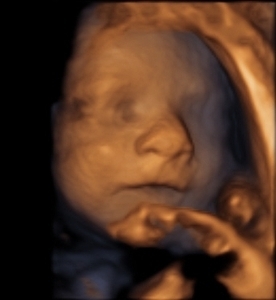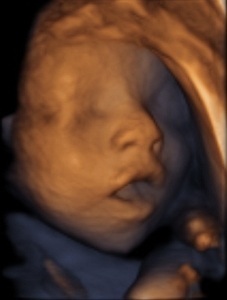Pregnancy week by week
| Selected week: |

You
The frequent running to the toilet becomes tiresome and could start bother your sleep, but due to the pressure of growing uterus, you are not getting away of it before the end of pregnancy. You might also have constipation. During pregnancy the woman could have pregnancy diabetes which is the disorder of metabolism of carbohydrates resulting in rise of blood sugar. Due to the pregnancy diabetes the fetus could grow very big, thus perish inside the uterus, birth trauma and postnatal adaptation disorders occur more often as to these children. The child could later be overweight and be apt to diabetes. The mother with pregnancy diabetes has an increased risk for premature birth, pre-eclampsia, caesarean section and occurrence of later II type diabetes.
There is a risk of pregnancy diabetes for
- overweight women (KMI prior to pregnancy ≥30 kg/m²)
- the pregnant who have had GDM during previous pregnancy
- the pregnant whose anamnesis includes the disorder of glucose tolerance
- the pregnant whose relatives of the first instance have had diabetes (mother, father, sister, brother)
- the pregnant who have given birth to heavy (>4500g) infant
- the pregnant whose anamnesis includes the death of the fetus with unclear reason
- the pregnant who have the syndrome of polycystic ovaries.
Your baby
Your baby is about 35 cm tall and weighs over 750 g. As the hearing organs of your baby have now fully developed, you could feel how your baby is moving when it suddenly hears some strong noise. The eyes of your baby have blue irises – the final colour of its eyes clarifies a couple of months after birth. If there is a boy growing in your stomach, his testicles start to fall to the scrotum. The baby trains breathing muscles and also breaths amniotic fluid in and out. Its skin is still wrinkled and transparent, but small blood vessels become more unnoticeable, as the adipose tissue is forming under the skin. The sebiparous and sweat glands function and eyebrows, lashes and finger and toe nails have developed and grow even more. According to research the child responds to touching. During pregnancy weeks 26-28 the babies open their eyes and they see the light coming through the stomach covers. The pineal gland has also developed which produces the hormone melatonin. Upon the impact of the given hormone the baby will have a daily regime. Some babies are more active in the mornings, others in the evenings.
Dr. Marek Šois recommends
To take care of oneself, it is worth taking the annual holiday before pregnancy and birth leave. If you want and can, take a nap during a day. It is important that your body could have adequate leisure time. To find a more comfortable sleeping position, use pillows for lifting legs and supporting stomach.
If you belong to the risk group of the pregnancy diabetes, you might be interested in screening of pregnancy diabetes (glucose tolerance test) or fetal 3D/4D ultrasound test for the assessment of fetal growth and quantity of amniotic fluid.

